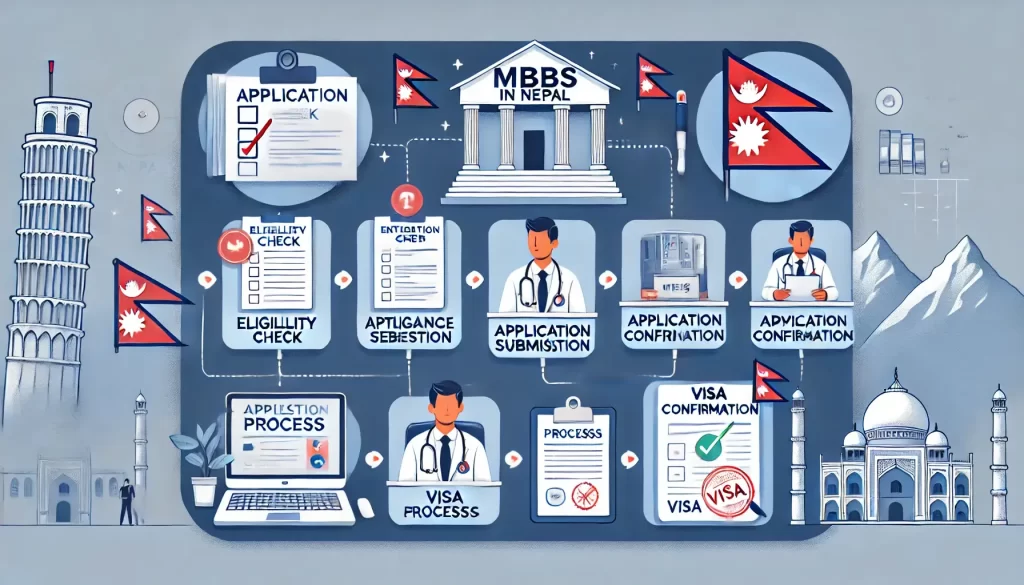MBBS in Germany
MBBS in Germany is a highly attractive option for international students due to its affordable tuition and world-class education. Public universities generally do not charge tuition fees, with only small administrative fees per semester. The six-year program includes theoretical studies, clinical training, and internships. Proficiency in German is required for internships and practicing medicine. Germany’s healthcare system provides excellent opportunities for hands-on learning. Graduates can apply for a medical license to work in Germany or other EU countries. Living costs range from $860 to $1,280 per month, depending on the city. This cost-effective pathway offers prestigious prospects across Europe.
Why MBBS in Germany ?
Affordable Education: Public universities in Germany do not charge tuition fees for medical programs, only small administrative fees per semester, making it highly cost-effective.
Recognition and Accreditation: Degrees from German universities are globally recognized, offering a prestigious qualification and enhancing career prospects worldwide.
Modern Curriculum: The six-year program includes a blend of theoretical studies, clinical training, and internships, providing a comprehensive medical education.
Language Barrier: While proficiency in German is required for internships and practicing medicine, some universities offer English-taught programs to accommodate international students.
Cultural Similarities: Germany’s multicultural environment and diverse student population ensure a welcoming atmosphere for international students.
Proximity to India: Germany is relatively close to India compared to other Western countries, making travel and communication easier for students and their families.
How Much Does It Cost to Study MBBS in Germany ?
One of the major factors contributing to the increasing number of international students choosing MBBS in Germany is the affordable fee structure. Here’s a breakdown of the estimated costs:
- Public Universities: No tuition fees for international students. Only small administrative fees ranging from $160 to $320 per semester.
- Private Universities: Tuition fees vary significantly, ranging from $10,000 to $30,000 per year.
- Living Costs: Approximately $860 to $1,280 per month, depending on the city.
Public universities offer a cost-effective pathway to a medical degree in Germany, with living expenses being relatively affordable.
Cost Breakdown for MBBS in Germany
| Expense Type | Estimated Cost (USD) |
|---|---|
| Eligibility requirements | High School + NEET + German Language / IELTS or TOEFL |
| Cost of Studying MBBS in Germany | Public Universities: No Fee |
| Living Expenses | $8,638.55 – $16,21.69 USD |
| Miscellaneous Fees (annual) | $625 – $1,250 |
Eligibility Criteria for MBBS in Germany
| Criteria | Details |
|---|---|
| Qualification | 10+2 or equivalent with Physics, Chemistry, Biology |
| Minimum Marks | 50% in PCB (Physics, Chemistry, Biology) |
| Entrance Exam | NEET (for Indian students) or equivalent entrance exam |
| Age Requirement | Must be 17 years or older at the time of admission |
| Language Proficiency | Proficiency in German, especially for internships and clinical practice |
Admission Process for MBBS in Germany
The admission process for MBBS in Germany is simple but requires planning. Here’s a step-by-step guide:
1. Eligibility Criteria
- Minimum Qualification: Candidates must have completed 10+2 or equivalent with Physics, Chemistry, Biology, and English as core subjects.
- Minimum Marks: A minimum of 50% marks in the qualifying examination is required.
- Entrance Exam: NEET (for Indian students) or equivalent entrance exam.
2. Application Process
- Research and shortlist universities or medical colleges in Germany.
- Submit an online application through the respective university’s website, providing necessary documents like academic certificates, NEET/IOM scores, and passport-size photos.
3. Entrance Exam and Selection
- After submitting the application, eligible candidates must appear for the entrance examination. Some universities also conduct interviews as part of the selection process.
4. Admission Offer
- Once selected, the university will issue an admission offer. Students need to accept the offer and pay the necessary fees to secure their seats.
5. Visa Process for International Students
- For international students, including Indians, applying for a student visa is mandatory. The respective medical college will provide the necessary documentation to facilitate the visa application.
Top Medical Colleges for MBBS in Germany
| Rank | College | Location | QS Ranking 2025 | Popular Subjects |
|---|---|---|---|---|
| 1 | Heidelberg University | Heidelberg | #28 | Cardiovascular Science, Molecular Medicine, Dentistry |
| 2 | Charité – Universitätsmedizin Berlin | Berlin | #59 | Epidemiology, Human Biology, Dental Medicine |
| 3 | Technical University of Munich | Munich | #84 | Biomedical Engineering, Medical Education, Medical Informatics |
| 4 | Ludwig Maximilian University of Munich (LMU Munich) | Munich | #97 | International Health, Medical Neurosciences, Molecular Medicine |
| 5 | Free University of Berlin | Berlin | #126 | Immunology, Molecular Biology and Genetics, Cell Biology |
Comparison: MBBS in Germany vs MBBS in India
| Criteria | MBBS in Germany | MBBS in India |
|---|---|---|
| Tuition Fees | No tuition fees at public universities | Varies widely, private colleges can be expensive |
| Duration | 4 to 6 years | 5.5 years |
| Language of Instruction | German (some programs in English) | English |
| Clinical Training | Extensive hands-on training in hospitals | Hands-on training during internship |
| International Recognition | Globally recognized | Recognized in India and some countries |
| Living Costs | $860 – $1,280 per month | Varies by city, generally lower |
| Cultural Experience | Multicultural environment | Familiar cultural environment |
| Research Opportunities | High emphasis on research | Varies by institution |
Conclusion
Choosing between MBBS in Germany and MBBS in India depends on various factors such as tuition fees, duration, language of instruction, clinical training, international recognition, living costs, cultural experience, and research opportunities. However, it requires proficiency in German and may have higher living costs. India provides a familiar cultural environment, varied tuition fees with lower costs in government colleges, and a shorter program duration. The quality of education can vary significantly between institutions. Consider these aspects based on your priorities, financial situation, and career goals to make an informed decision.


